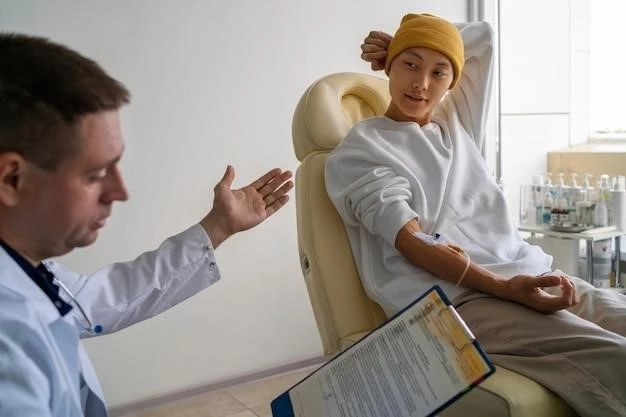Understanding Balo Disease
Balo Disease, a rare neurological disorder, is believed to be caused by an autoimmune reaction that damages the brain’s white matter. Understanding the causes of this condition is crucial for effective treatment and management. Consult with a neurologist for proper diagnosis and explore treatment options to alleviate symptoms and improve quality of life.
Causes of Balo Disease
Balo Disease, also known as concentric sclerosis, is a rare inflammatory condition that affects the central nervous system. The exact cause of Balo Disease is not well understood, but it is believed to involve an abnormal immune response attacking the brain’s white matter. This autoimmune reaction leads to the formation of concentric rings of demyelination within the brain, resulting in neurological symptoms.
Research suggests that genetic factors may play a role in predisposing individuals to Balo Disease, and environmental triggers could potentially contribute to its development. It is essential to work closely with healthcare providers and specialists to monitor symptoms, conduct diagnostic tests, and determine the most appropriate treatment plan for managing this complex neurological disorder.
Individuals diagnosed with Balo Disease may benefit from maintaining a healthy lifestyle, managing stress levels, and following recommended treatment regimens to help reduce the impact of the disease on their daily lives. By staying informed about the latest research and advancements in the field of neurology, individuals with Balo Disease can empower themselves with knowledge and make informed decisions about their healthcare journey.
Symptoms and Diagnosis of Balo Disease
Symptoms of Balo Disease can vary depending on the location and extent of white matter damage in the brain. Common symptoms include neurological deficits such as weakness, numbness, vision problems, and difficulties with coordination and balance. Individuals may also experience cognitive changes, mood disturbances, and speech abnormalities.
Diagnosing Balo Disease typically involves a combination of clinical evaluation, imaging studies such as MRI scans to assess the brain’s white matter, and sometimes a biopsy to confirm the presence of characteristic concentric rings of demyelination. It is essential for healthcare providers to conduct a thorough assessment and consider differential diagnoses to accurately diagnose Balo Disease and differentiate it from other neurological conditions.
Early detection and diagnosis of Balo Disease are crucial for implementing appropriate treatment strategies and managing symptoms effectively. If you or a loved one experience unexplained neurological symptoms, seek medical attention promptly and collaborate with neurology specialists for comprehensive evaluation and care tailored to your specific needs.
Treatment Options for Balo Disease
Managing Balo Disease involves a multidisciplinary approach to address symptoms and slow disease progression. Treatment options may include corticosteroids to reduce inflammation, immunosuppressive therapies to modulate the immune system’s response, and physical therapy to improve mobility and function.
In some cases, disease-modifying agents such as disease-modifying therapies may be considered to target specific pathways involved in the progression of Balo Disease. It is important to work closely with a neurologist or a healthcare team experienced in treating rare neurological disorders to develop a personalized treatment plan tailored to your individual needs.
Additionally, exploring supportive therapies such as occupational therapy, speech therapy, and cognitive rehabilitation can help individuals enhance their quality of life and maintain independence. Regular follow-up appointments and monitoring of symptoms are essential to track disease progression and adjust treatment strategies as needed.
Be proactive in advocating for comprehensive care and seek out support resources to connect with others living with Balo Disease. By actively engaging in your treatment plan and prioritizing your overall well-being, you can better manage the challenges associated with this complex neurological condition.
Prognosis and Recovery from Balo Disease
The prognosis for individuals with Balo Disease can vary depending on factors such as the extent of white matter damage, the progression of neurological symptoms, and the response to treatment. While Balo Disease is considered a progressive condition, some individuals may experience periods of stability or improvement with appropriate management.
Recovery from Balo Disease is a complex process that requires ongoing monitoring and support. It is essential to work closely with healthcare providers to optimize treatment strategies and address evolving needs. Rehabilitation programs tailored to specific symptoms, including physical, occupational, and speech therapies, can help individuals regain function and enhance their quality of life.
Emotional and social support are also crucial aspects of the recovery process. Connecting with support groups, mental health professionals, and other individuals facing similar challenges can provide valuable encouragement and coping strategies. Maintaining a positive outlook, staying engaged in treatment, and fostering a strong support network can contribute to better outcomes and quality of life for individuals living with Balo Disease.
Research Advances in Balo Disease
Ongoing research in the field of Balo Disease aims to deepen our understanding of the underlying mechanisms, identify new treatment approaches, and improve outcomes for individuals affected by this rare neurological disorder. Scientists are exploring the role of genetics, autoimmune processes, and environmental factors in the development of Balo Disease.

Advances in imaging technology and biomarker discovery have enhanced diagnostic accuracy and disease monitoring capabilities. Clinical trials evaluating novel therapies, such as immune-modulating agents and remyelination-promoting drugs, offer hope for more targeted and effective treatment options in the future.
Collaboration between researchers, healthcare professionals, and patient advocacy groups is essential to accelerate progress in Balo Disease research. By participating in clinical studies, staying informed about emerging therapies, and supporting advocacy efforts, individuals and families affected by Balo Disease can contribute to advancing knowledge and improving care for this challenging neurological condition.
Rare Neurological Disorders⁚ Balo Disease
Balo Disease, classified as a rare neurological disorder, presents unique challenges due to its complex nature and limited understanding within the medical community. As a demyelinating disease affecting the central nervous system, Balo Disease requires specialized expertise for accurate diagnosis and comprehensive management.
Individuals diagnosed with rare neurological disorders like Balo Disease may encounter difficulties in accessing appropriate care and support; It is vital to seek out healthcare providers with experience in treating rare conditions and to advocate for multidisciplinary care to address diverse medical and lifestyle needs.
Connecting with patient advocacy groups, participating in research initiatives, and staying informed about advancements in the field of rare neurological disorders can empower individuals living with Balo Disease to navigate their healthcare journey with knowledge and resilience. By fostering a community of understanding and support, individuals affected by rare conditions can enhance their quality of life and contribute to ongoing efforts to improve treatment outcomes.
Balo Disease in Children⁚ Special Considerations
When Balo Disease affects children, special considerations must be taken into account due to their unique medical and developmental needs. Early recognition of symptoms, prompt diagnosis, and tailored treatment plans are essential to support the well-being and cognitive development of pediatric patients.
Healthcare providers caring for children with Balo Disease should collaborate closely with pediatric neurologists and specialists to ensure personalized care that addresses the physical, cognitive, and emotional aspects of the condition. Monitoring growth, development, and school performance is crucial to adapting treatment strategies and providing appropriate support.
Emotional support for both the child and their family is paramount in managing the challenges associated with a rare neurological disorder like Balo Disease. Engaging with pediatric support groups, educational resources, and mental health services can help families navigate the complexities of the condition and foster resilience in coping with its impact on daily life.
Empowering children with Balo Disease to express their feelings, ask questions, and participate in age-appropriate activities can promote a sense of normalcy and self-esteem. By prioritizing holistic care, communication, and advocacy, families and healthcare providers can work together to optimize outcomes and enhance the quality of life for children affected by Balo Disease.
Support and Resources for Individuals with Balo Disease
Living with Balo Disease can present various challenges, but there are support systems and resources available to help individuals navigate their journey with the condition. Patient advocacy organizations, online forums, and support groups offer valuable opportunities for connecting with others facing similar experiences and accessing information about the latest developments in research and treatment.
Seeking mental health support and counseling can also be beneficial in managing the emotional impact of living with a rare neurological disorder like Balo Disease. Therapists trained in neurocounseling or cognitive-behavioral therapy can provide strategies for coping with stress, anxiety, and changes in daily life resulting from the condition.
Furthermore, exploring caregiver support services, respite care options, and community resources can help individuals with Balo Disease and their families access practical assistance and relieve some of the burdens associated with ongoing care and management of the condition. Educating family members, friends, and caregivers about Balo Disease can foster a supportive environment and encourage open communication about individual needs and challenges.
By proactively engaging with available support services, staying informed about self-care strategies, and advocating for comprehensive care, individuals living with Balo Disease can enhance their quality of life, maintain independence, and cultivate a sense of empowerment in managing the complexities of their condition.
